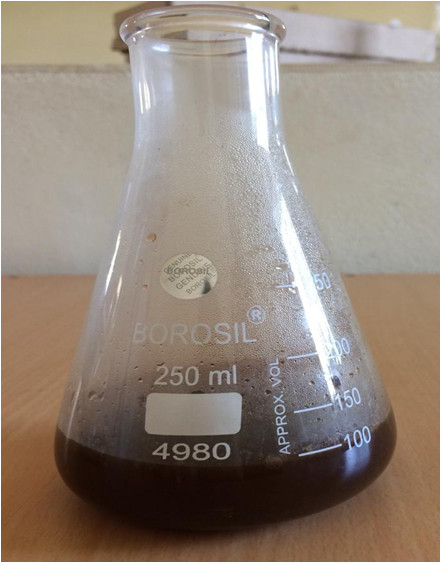Nano Science and Nanotechnology - Material Science for Development
The term nano
The word 'Nano' has become common in the day-to-day conversation and has become synonymous with a tiny or very small object. You may know my experience with a carton maker, who prepares cartons for packaging goods of 50 inches height and proportionate width and depth. When I approached him for making a carton, for a new product of 10 cm length, 4 cm width and 1.5 cm height, he told me, "We usually prepare dies for cutting out cartons of large and medium sizes, but for your purpose, we have to exclusively make a nano die". By this conversation, hope that you have picked up, what was intended by him, by the word “nano” his intention was to convey a comparatively smaller object. But, here there is no science in measurement. It is only a passing vague statement. In the succeeding lines, let us understand more of nano science and nanotechnology.
Nanoscience
Nanotechnology is a branch of science, the matter at a submicroscopic level up to the nanometer level. Nanotechnology is the scientific and technical study of matter on a nuclear, atomic and supramolecular scale.
Nanotechnology
The word nano means very minute, to the scale of a billionth of a meter and it is the science of matter at such minute scale. The field of nanotechnology is very diverse and includes new methodologies dependent on sub-atomic self-gathering, characteristics of materials on a nuclear scale. It is an expansion of ordinary material science and the advancement of new materials with changes made to them in the nanoscale. The physical features and appearance of matter at such levels are altogether different than what we perceive by normal vision or microscopic vision. Controlling the properties of matters at nanometer levels delivers altogether different results from the materials, which creates wonders of nanotechnology.
The study of nanotechnology involves the integration of various fields of science, such as chemistry, engineering, molecular biology, atomic science, surface science, and material science. Uses of characteristics of nanotechnology and nanoscience in education and industry are in the initial stages in India. The power of nanotechnology can make wonders in the next few years.
Nanotechnology applications
- A scratch-resistant coating on cars, using nano-particles of ceramic, each less than a millionth of a millimetre in size, when sprayed on a painted surface, the particles link in with one another in such a way as to create a dense, smooth and scratch-resistant coating.
- Nano-particles in oil miscible liquid-form, when added to a diesel engine, reduces engine oil wastage, increased engine life and reduces the emission of carbon dioxide in the exhaust, thus increasing the overall efficiency.
- Nanobots or self gathering nano-scale robots play a crucial role in bio-medicine, for the treatment of cancer, cerebral aneurysm, removal of kidney stones, elimination of defected parts of the DNA, and for other treatments which need a precise activity to save human lives.
- In agriculture, instead of spaying a chemical, if it is impregnated on a nano-matrix of polymer, it releases the chemical in a controlled manner for a longer duration, protecting the crop against pests.
The Indian Nano Mission
Nanotechnology promotive programme by the Government of India is called as Nano Mission, which is an umbrella program for the capacity building, which envisages the overall development of nanotechnology in the country to tap its potential for national development. The objectives of the Nano Mission are to promote basic research on nanotechnology, develop nanotechnology and nano-science with the latest equipment, generate nanotechnology applications and conduct nanotechnology training programmes. Human resources development on nanotechnology during higher studies and international collaboration are encouraged under this programme.
Institutions and organizations involved in nanotechnology research in India
Nanotechnology is an emerging area that engages almost every technical discipline - from chemistry to computer science - in the study and application of extremely tiny materials. It is one of the top-ranked subject related to academics and research. There are about 20 research centres in India, engaged in nanotechnology discipline. Bhabha Atomic Research Center, Mumbai, Centre for Nano and Soft Matter Sciences, Bengaluru, The Centre for Nano Science and Engineering, Bengaluru, and Jawaharlal Nehru Scientific and Advanced Research, Bengaluru are the leading centres in India.

Education and Research in Nanotechnology
Institutions, deemed universities, universities, centres of excellence are carrying out study and research on nanoscience and nanotechnology in India.
Higher education
Universities with higher study in nanotechnology
Postgraduate studies such as M.Tech and M.Sc. lead to the research field in nanotechnology. There are more than ten universities and institutions of higher study which are engaged in postgraduate level study in the subject. These include private deemed universities, traditional universities, national institute of technologies, etc. as top runners.
Some colleges offering PG in nanotechnology are, Delhi Technological University, Jadavpur University, Amity University, Gurugram, National Institute of Technology, Surathkal, National Institute of Technology and SRM Institute of Science and Technology.
Nanotechnology graduate courses
There is wide-spread thought that narrowing down to specialized subject is not good at the undergraduate (UG) level. However, a focused study from UG level can provide a strong base for higher education and research. In that direction, there are nearly ten institutions offering B.Tech. Course in nanotechnology in India.
Some colleges offering UG in nanotechnology include Srinivas Institute of Technology Mangaluru, Central University of Jharkhand, Ranchi, Amity University, Gurugram, SRM Institute of Science and Technology, Srinivas University Mukka, Bharath Institute of Higher Education, etc.
Industrial nanotechnology in India
Opportunities in nanotechnology are just in the budding stage. Already certain industries have ventured into the field as given here below.
Emerging nanotechnology industries in India
Following are some of the categories of industries in the field of Nanotechnology,
- Production of CNTs and graphene (Adnano Technologies, Bottom Up Technology Corporation, KNV’s Incorporations, Nanospan Company, NoPo Nanotechnologies, NanoXpert Technology, Norico Pvt. Ltd., Platonic Nanotech, etc.),
- Nanocoating products and nanopolymer manufacturing (Advanced Nanotech Lab, Bilcare, Navran Advanced Nanoproducts, Nilima Nanoroducts, Saveer MatrixNano Pvt Ltd., Quantum Corporation, ),
- Nanoparticles production (Auto Fibre Craft, Bee Chems, Dabur Pharma, Kerala Minerals & Metals, Micromaterials Pvt. Ltd., NanoCET, Nanomics Technologies Pvt. Ltd, Nanoshel, Neo-Ecosystems, Reinste Nano Ventures, Saint-Gobian Glass, Smart Nanoz),
- Nano chemical distribution (Nano Research Elements, Sisco Research Laboratories),
- Nanotechnology equipment suppliers (Icon Analytical Equipment, Mittal Enterprises), and
- R&D analysis and research in nanotechnology (Avansa Technology & Services, Egoma Technologies, Eris Technologies, NanoSniff Technologies, Velbionanotech).
Scope of nanotechnology
The initial startup arena of nanotechnology is to learn, teach, educate, develop and diversify the skill training. It has a huge scope in the upcoming generations. It is the third-highest booming field when compared with IT and the Internet. In India, Bangalore and Chennai are the manufacturing hub for IT and Medicine. The Indian government has already started Nanoscience and Nanotechnology initiatives and various funding agencies like the Department of Science and Technology, Indian Council of Medical Research and Indian Council of Agricultural Research are supporting pioneering research on Nanoscience and nanotechnology.
Future of nanotechnology in India
There is a bright future scope for nanotechnology education in India. In the future, nanotechnology will be more popular. The use of nanotechnology is at the top in cities like Chennai and Bangalore as these two cities are at the top in medicine production and IT. Government of India is taking good steps towards nanotechnology development. To increase the popularity and awareness of this technology, the Department of Science and Technology in India are doing very hard work. Several major educational organizations are conducted by this council. In South India, well-established institutions such as Indian Institute of Science Bengaluru, and Jawaharlal Nehru Centre for Advanced Scientific Research, Bengaluru are doing research on this topic.
Around 38 laboratories in India have been started by the Council of Scientific and Industrial Research which are totally devoted to the research of nanotechnology. These researches are useful in improving the functioning of developed sensors, water filters, more efficiently release of drugs, etc.
Scope of nanotechnology
The initial startup arena of nanotechnology is to learn, teach, educate, develop and diversify the skill training. It has a huge scope in the upcoming generations. It is the third-highest booming field when compared with IT and the Internet. In India, Bangalore and Chennai are the manufacturing hub for IT and Medicine. The Indian government has already started Nanoscience and Nanotechnology initiatives and various funding agencies like the Department of Science and Technology, Indian Council of Medical Research and Indian Council of Agricultural Research are supporting pioneering research on Nanoscience and nanotechnology.
Future of nanotechnology in India
There is a bright future scope for nanotechnology education in India. In the future, nanotechnology will be more popular. The use of nanotechnology is at the top in cities like Chennai and Bangalore as these two cities are at the top in medicine production and IT. Government of India is taking good steps towards nanotechnology development. To increase the popularity and awareness of this technology, the Department of Science and Technology in India are doing very hard work. Several major educational organizations are conducted by this council. In South India, well-established institutions such as Indian Institute of Science Bengaluru, and Jawaharlal Nehru Centre for Advanced Scientific Research, Bengaluru are doing research on this topic.
Around 38 laboratories in India have been started by the Council of Scientific and Industrial Research which are totally devoted to the research of nanotechnology. These researches are useful in improving the functioning of developed sensors, water filters, more efficiently release of drugs, etc.
Conclusion
Nanotechnology courses and the encouragement given to business start-ups indicate progress in the field to make more products at low cost with high precision. By applying nanotechnology, we can make better products with better properties. Similarly, it has relevance in different fields, utilization of which may make things easier for life.
This content is accurate and true to the best of the author’s knowledge and is not meant to substitute for formal and individualized advice from a qualified professional.
© 2019 Halemane Muralikrishna








